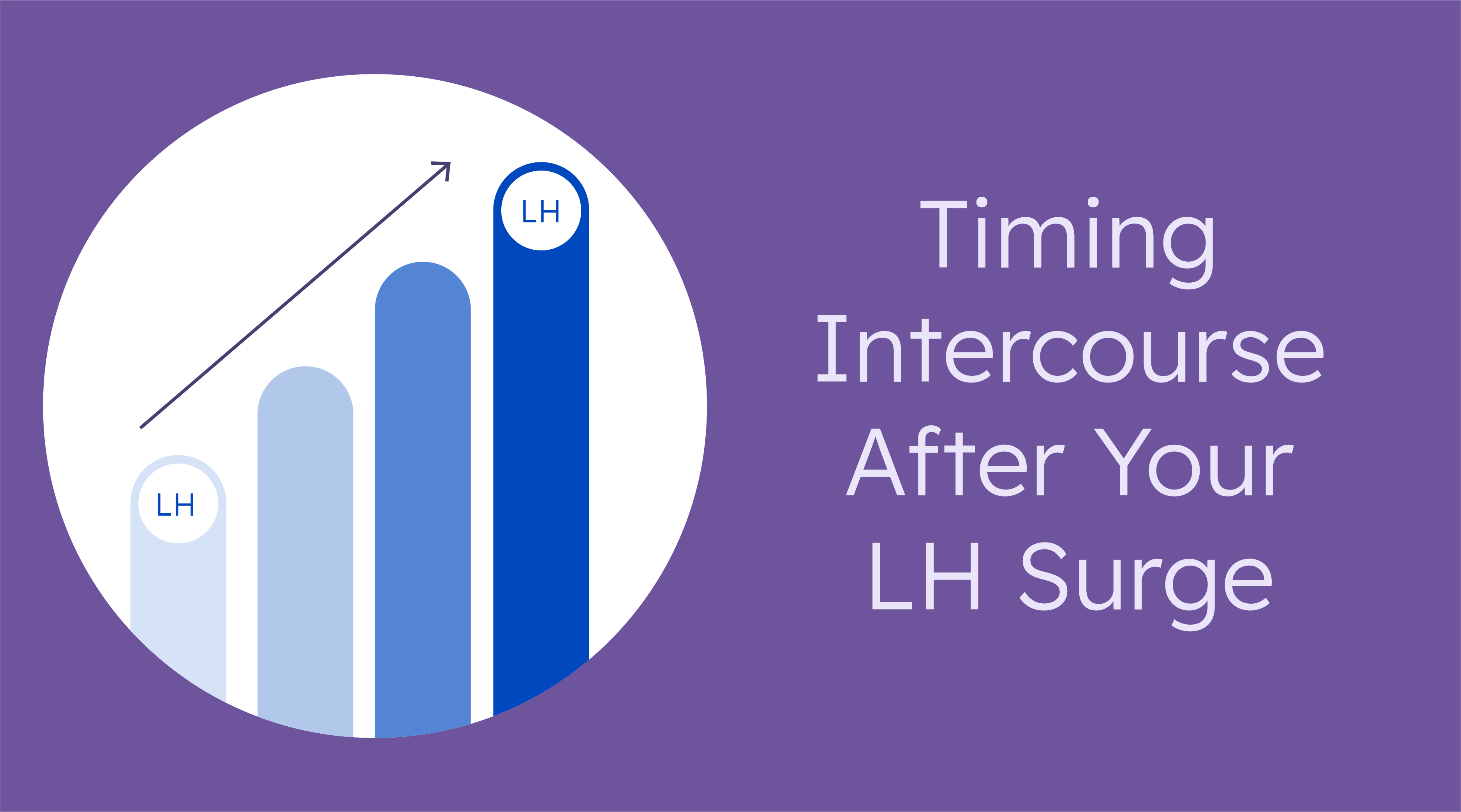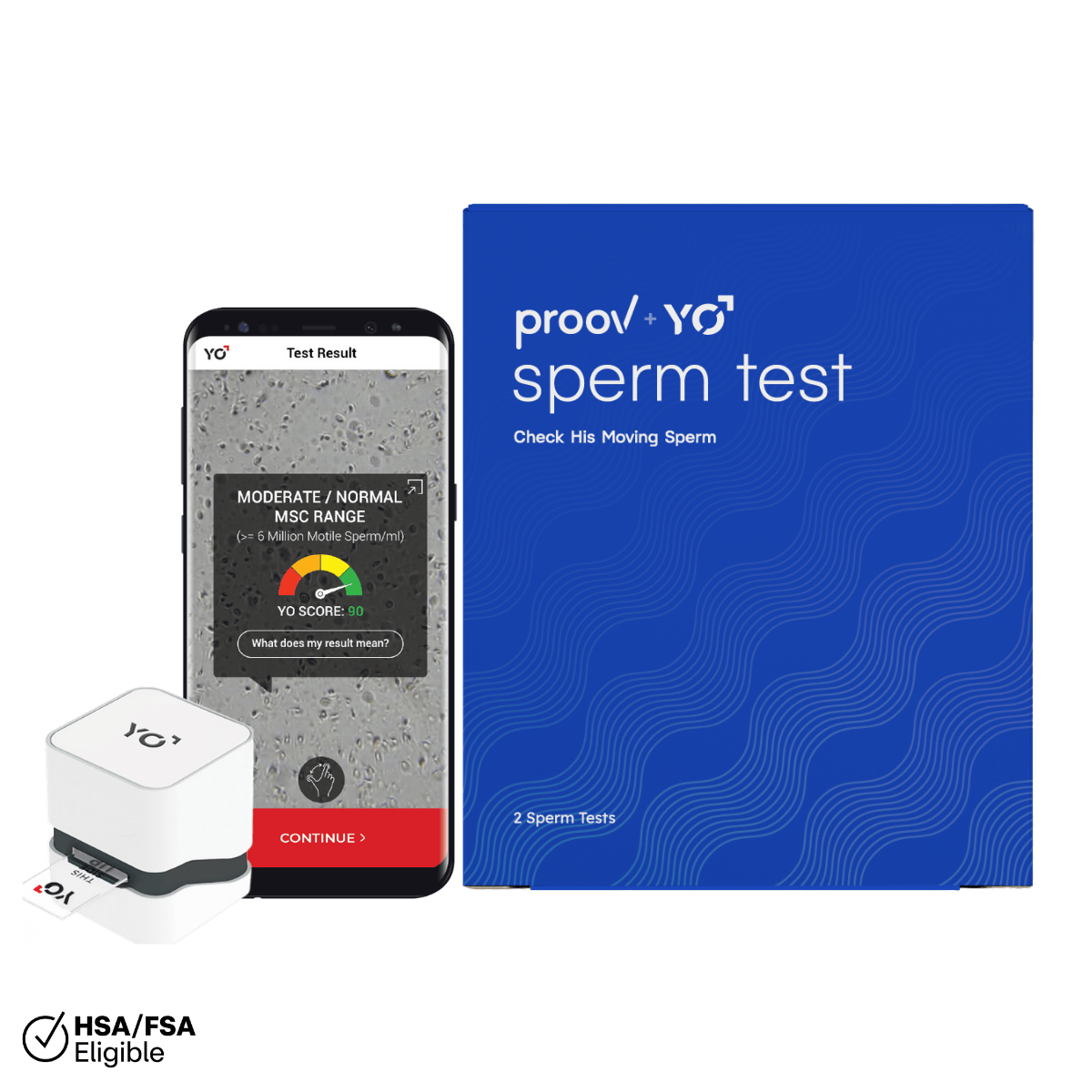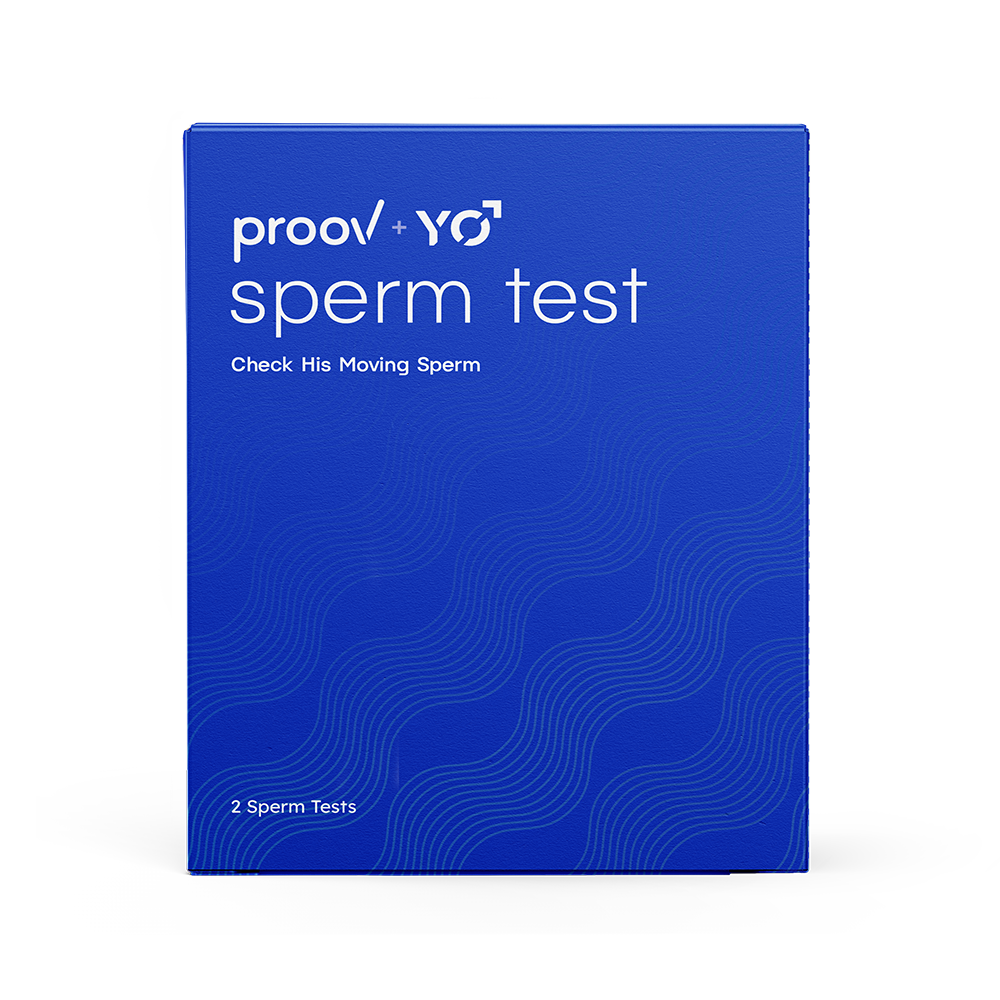Written by: Dr. Amy Beckley, PhD, Founder and Inventor of the Proov test.
You’re trying to get pregnant, and you’re researching all the things that can help you conceive quickly! First things first, when you are ready to conceive, it’s important to let your OBGYN know so that they can have a preconception visit to talk about important factors to consider (like stopping contraception, health considerations, and more).
Your doctor may simply tell you to come back in a year if you’re not pregnant, while others may tell you to pinpoint ovulation in order to conceive more quickly.
That’s because ovulation is critical to conception! So a great first step to take is to make sure that you’re ovulating each month, and to then identify exactly when that’s happening within your own cycle. A common way to begin identifying ovulation is through the use of hormone strips that measure the body’s LH surge.
What is an LH surge?
After your period ends, the ovaries recruit a few eggs to prepare for possible ovulation that cycle. (Not all the eggs that develop will actually ovulate.) These eggs create a follicle around it that supports and protects the egg.
The follicle also produces the hormone estrogen. Estrogen is what helps develop a thick, healthy uterine lining and many other reproductive changes essential for pregnancy!
When this estrogen reaches a specific level sufficient to ovulate, it signals the brain that it’s time to start the next step in the process. This signal causes the brain to release a hormone called LH, which stands for luteinizing hormone. LH is what actually triggers the ovary to release the egg so that it may be fertilized.

Since LH will always precede ovulation, it is often tracked in an effort to identify ovulation. Thankfully, there are at-home hormone tests that can detect the presence of the LH surge in order to let someone spot it from the comfort of their home. No lab work necessary!
Our Predict LH tests measure LH levels so that you can detect your 2 most fertile days and possible ovulation.
Timing Sex for Ovulation
In order to successfully catch the LH surge during a menstrual cycle, it’s important to know a few basic facts about your cycles. Do you have regular or irregular cycles? How long are your cycles on average? Based on this information, you will begin testing for LH several days before you anticipate an LH rise. (That way, if your LH surge happens earlier than you anticipate, you’ll still see it!)
How long does an LH surge last? Well, you can catch the surge for about 24 hours, although sometimes they can be much shorter. That’s why testing with the Predict kit daily – and sometimes even twice daily – will increase your chances of spotting the surge in time to possibly conceive. If you have irregular cycles, it’s recommended that you begin testing daily at the end of your period, so that you don’t miss it.
Once you see the surge (via a positive Predict test or similar ovulation predictor kit), you can focus on timing sex for ovulation! That’s because sperm need to be available when the egg ovulates in order to conceive. Many times, sperm will remain in the female reproductive system for up to 5 days waiting on the egg to ovulate.
Thank goodness! Because the egg itself will only live 12-24 hours after ovulation. After this point, the egg disintegrates and cannot be fertilized. So those waiting sperm can really increase your chances of conception!

When should you have sex after an LH surge?
Ovulation can occur anywhere from 8-36 hours after the LH surge is detected, but most commonly 12-36. The reason this range is so wide is due to variability in each body and variability in the timing of the LH testing.
Whether your positive LH test comes up during the beginning of the LH rise or after the peak makes a considerable difference when it comes to hours until ovulation. It varies on how long after an LH surge you ovulate.
Still, studies show that it’s the days leading up to ovulation that are the most likely to result in a pregnancy. So whether your positive LH test occurred at the beginning of the rise, or after the LH peak, it’s time to get busy!
If you have irregular cycles or have been using LH tests to time intercourse and have yet to conceive, you may be “trying” too late depending on how soon you ovulate after your surge. In cases like this, we recommend measuring E1G, a urine metabolite of estrogen, as well via a test like Complete since rising estrogen is one of the earliest signs of the fertile window.
Since ovulation has not yet occurred (but will be happening very soon), these are prime hours to introduce semen into the reproductive system and possibly conceive!
What are the chances of conception?
We wish we could tell you that sex on these days means a positive pregnancy test a few weeks later. But each menstrual cycle used to conceive pregnancy is only 30% likely to result in a pregnancy.
Remember, it takes a lot of moving parts in order to produce a pregnancy: healthy ovulation of an egg, presence of healthy sperm, successful joining of egg and sperm, thick, receptive uterine lining, and successful implantation. Phew!
Don’t let that discourage you, though! When we look at statistics for pregnancy within the first six months of trying to conceive, 80% of couples will do so within 6 months!
It’s very normal, then, for it to take healthy couples up to six months to naturally conceive. This is not a sign of infertility or other issues, but a natural part of the journey of trying to conceive.

How to Increase Chances of Fertility
Still, you may be interested in ways to increase your chance of pregnancy with each cycle. Remember that your reproductive health is impacted by your overall health. So taking care of yourself (physically, mentally, emotionally) positively impacts your reproductive health.
Some shared tips for increasing your chances of pregnancy are:
- Stop smoking or using tobacco products.
- Avoid alcoholic beverages when trying to conceive.
- Reduce caffeine intake to one cup a day (less than 200mg of caffeine).
- Maintain an exercise routine, but do not over do it!
- Reduce overall stress in life, in whatever way you can.
If you use your LH testing and follow the tips we mentioned and don’t conceive after 12 months, check in with your doctor to evaluate if additional steps may be helpful or try additional fertility testing with Proov!













